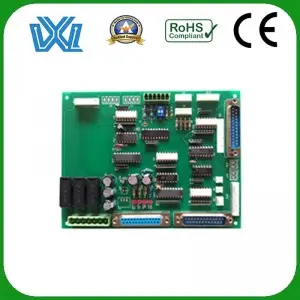With renewable energy gaining momentum, solar panels have become a shining star in the pursuit of sustainable solutions. These eco-friendly devices harness solar energy, converting sunlight into electricity. However, as the world becomes more aware of its carbon footprint, an important question arises: Can solar panels be recycled? In this blog, we explore the potential of recycling solar panels and shed light on the environmental impact of their disposal.
Body:
1. Environmental challenges for solar panels:
Solar panels are made from a variety of materials, including glass, aluminum, and silicon. While these components contribute to their durability and efficiency, they also pose environmental concerns. If not disposed of properly in landfills, solar panels can release hazardous substances such as lead and cadmium, endangering ecosystems and human health. Therefore, finding sustainable ways to deal with its end-of-life management becomes imperative.
2. Solar Panel Recycling Commitment:
Recycling solar panels offers a meaningful avenue to address the negative environmental consequences associated with their disposal. Although recycling technologies are still evolving, they have enormous potential. These processes recover valuable materials such as silicon and silver from the panels, reducing the need for further extraction and minimizing raw material consumption. In addition, recycling can significantly reduce greenhouse gas emissions and enhance the environmental benefits of using solar energy.
3. Existing challenges and opportunities:
Despite these benefits, there are challenges preventing widespread solar panel recycling. Currently, the cost of recycling outweighs the value of recycled materials, discouraging many from taking up this option. Furthermore, the lack of standardized recycling facilities and regulations creates obstacles to establishing a well-organized recycling system. However, these barriers can be overcome through innovation and collaboration among industry stakeholders, policy makers, and environmental groups.
4. Industry initiatives and innovations:
Recognizing the importance of sustainable practices, the solar industry has been actively promoting initiatives to address the challenges of solar panel recycling. Many manufacturers offer take-back programs or work with recycling companies to ensure proper disposal and material recovery. In addition, researchers are exploring new recycling methods, such as laser technology and chemical processes, to increase efficiency and reduce costs. These advances pave the way for a circular economy in the solar industry.
5. Call for collective responsibility:
While manufacturers and policymakers play a key role in driving solar panel recycling programs, individuals must also take responsibility as environmentally conscious consumers. Individuals can contribute to a more sustainable future by supporting manufacturers through strong recycling programs and choosing recycled panels when purchasing new panels.
in conclusion:
Solar panels are undoubtedly a renewable energy solution with great potential. However, their disposal presents a challenge that requires urgent attention. Through continued research, innovation and collaboration, the solar industry can establish sustainable recycling practices that minimize environmental impact. Let’s work together to ensure this abundant energy continues to pave the way for a greener future by providing light not only through solar panels, but through responsible end-of-life management.
Post time: Jun-21-2023

